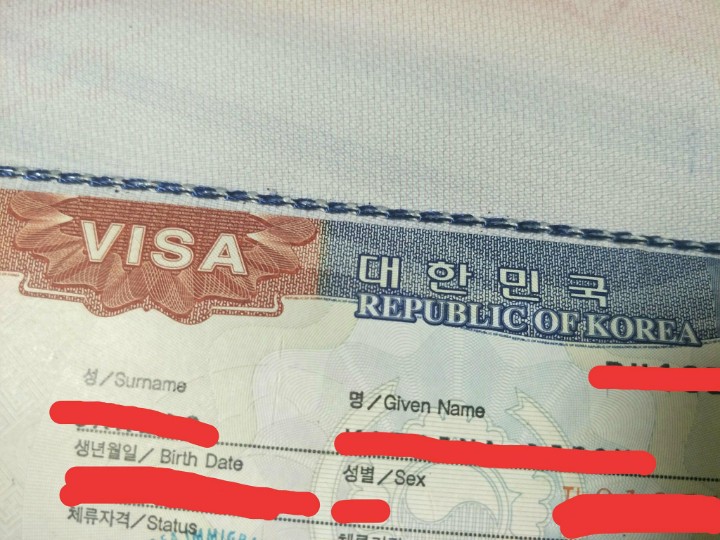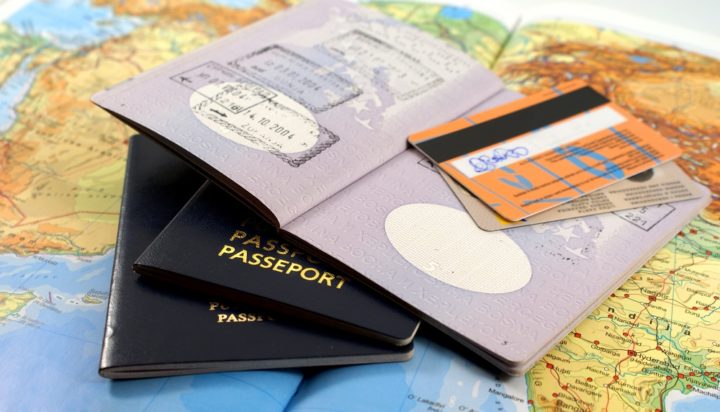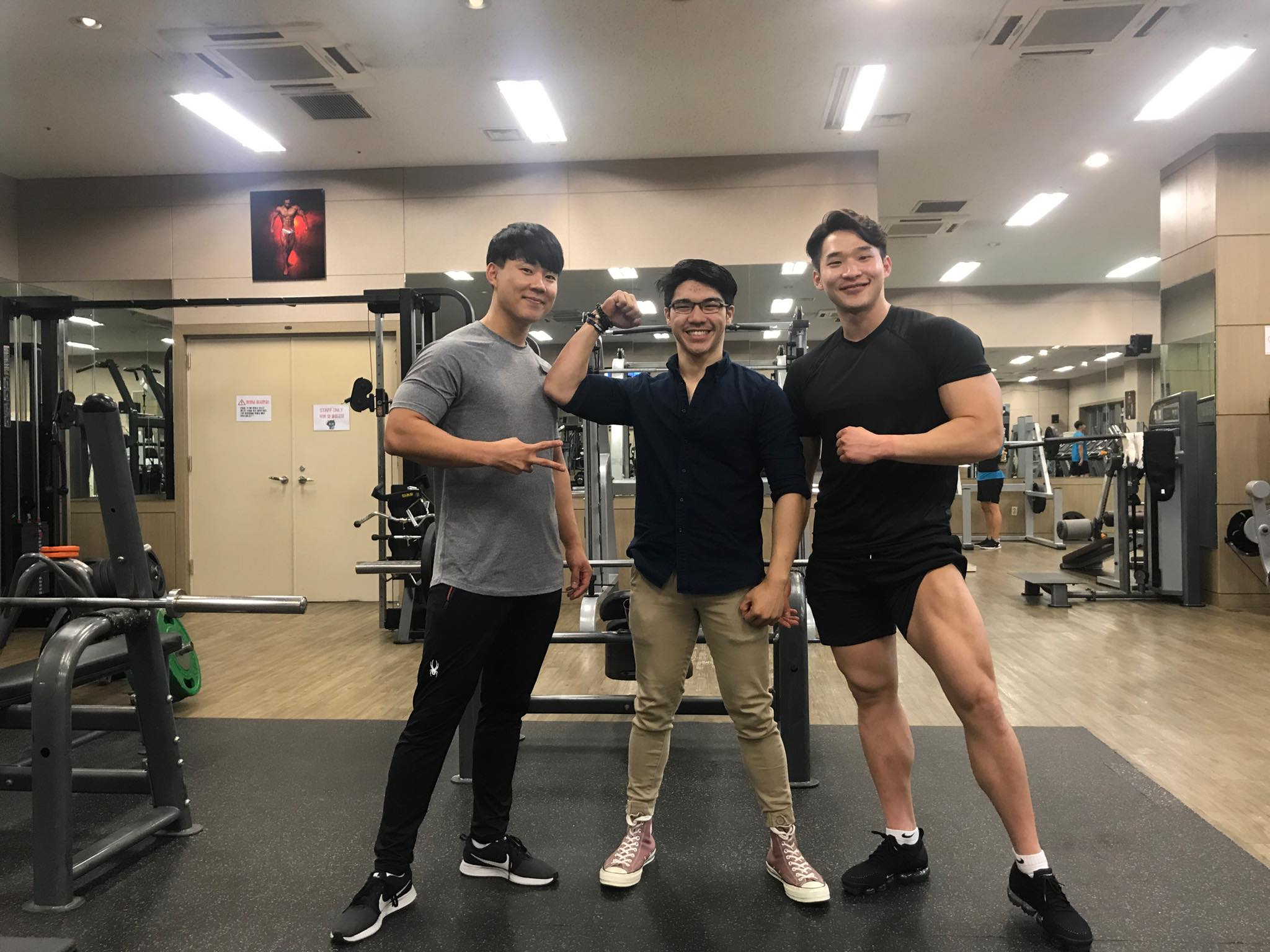Words by: Miko Insame
Featured Image by: So Cool Korea
One of the best experiences I had last year was taking the leap to live in Korea for a semester. I applied and got accepted into a university just outside Seoul and spent the next four months in an adventure I would eternally be grateful for.
The peak of Bukhansan National Park offered a breathtaking view. (Photo by: Maria Bianes)
I came up with this article to share my experience living in South Korea over those four months, both as a reflection and, hopefully, as a helpful guide for people who may dream of the same, and be fortunate enough like I was to study in a country a lot of Filipinos are obsessing over.
Without further ado, here’s how I lived in Korea for a semester.
ALSO READ: Here are 10 great reasons to study in Europe
1. Finding out available deployment opportunities
There are a lot of different deployment opportunities you can find if you look. Usually, the university you’re currently attending has offerings to be an exchange student with a partner university abroad. This means that while you can go to study at the partner university abroad, you’ll only pay the tuition fee of the university you came from. This method is what’s known as the tuition-waived program. This is how it worked for me.
Exchange programs like this usually last an entire semester, so if you’re unsure or don’t really want to commit to months-long stay abroad, you can try to find study tours instead. Study tours are shorter, more compact experiences where you can learn something new without the full commitment to a semester’s worth of academic workload.
The best way to find exchange programs/study tours is being active within your university. Check and see if your university has an International Relations Office and ask around for the process of applying. Another source of study tours could be from the department of your major. If you’re going big and want an exchange program, it’s best to do your research and start early. That’s because…
2. Getting your departure requirements in order
You got your application filled out? Good. If it’s an exchange program, you’ll probably have a year’s wait or possibly a semester or two to prepare all your pre-deployment requirements. These include getting a VISA. Other documents include your Transcript of Records, Certificate of Good Health, and a notarized statement of endorsement that states how you’ll be able to survive and afford your journey.
Getting a VISA, figuring out the way to the host university, and getting plane tickets are all things you need to think about, but make sure to keep your grades up as well. One of the main things about being an exchange student is that your university is sending a representative of their brand of education to another country, so you have to show some school pride and be something that the school wants to represent them abroad.
As for getting the Korean VISA, the latest you can expect to apply for one is a week before leaving. That’s because that’s how long they take for processing one. Obviously, don’t cram these things and plan ahead of time. The VISA requires a tuberculosis clearance which involves possibly an x-ray of your chest. Take these things into account when you start trying to get there.
3. Overcoming the language barrier and culture shock
One of the best ways I socialized was applying for the gym. Here’s a photo of me and the gym’s trainers!
Once you get over the initial rush of excitement when your plane lands and you are welcomed by the university with open arms, make sure to take in the culture around you and figure out ways to adopt it and stick by it. Remember, you are a visitor so you shouldn’t expect the country to adjust to you, you should adjust to it, or find out a compromise.
The most jarring things that I had to deal with was bathing rituals and culture in Korea. Shower rooms in Korea are mostly public, so if you signed up for a gym as I did, you’d have to bathe in a big shower room with everyone else. The culture is one of less wastefulness so I barely got to use the big bath towel that I always use back at home to wrap myself in before and after a shower. Koreans don’t believe in that so I got used to just drying every inch of my body with a small, square face towel and investing in a hairdryer.
I didn’t really learn the Korean language when I decided to go, mainly because I was confident that English would get me through to the end. I highly recommend though that if you’re not interested in taking language classes or learning the local language in depth that you at least learn basic phrases. I got by on four months in Korea living with just the basic sayings “Hello,” “Thank you,” and “Where is the restroom?”
Also, here’s a tip: One of the requirements for living in Korea is what’s known as the Alien Card. This is an immigration document that permits you to live in Korea but also be able to buy a local SIM card. The university usually helps with registering and scheduling for the Alien Card, but in terms of actually processing the documents, you’ll be needing to go to the Immigrations Department all the way in Incheon.
And here’s another side note: English in Korea is really a hit or miss; most of the locals may understand what you’re asking for in English if you’re near the big cities but as you get further and further away from the major touristy areas, fewer and fewer people will understand English. That’s why I recommend knowing a few phrases or words, and take the language classes, if you can. Your host university will most probably offer classes.
4. Getting used to living on your own

Around a few days or probably a week or two into your semester abroad, you’ll realize the amount of responsibility it takes to sustain living alone. Living alone meant that I had to find food for myself, do my own laundry and make bi-weekly trips to the nearby grocery for stuff to store in a mini-fridge shared by four people.
The best advice I can give for living alone and learning how to take care of yourself is to just start doing it. A lot of times you will want to put it off to tomorrow, but there’s nothing worse than waking up late to class one morning and not being able to throw on clothes because you forgot laundry day. Even if you don’t mind wearing day-old clothes (ew!), remember to do groceries and plan out what you need ahead of time. This goes especially for those living on a budget.
All in all, just make sure to take care of yourself by taking care of the space you live in.










